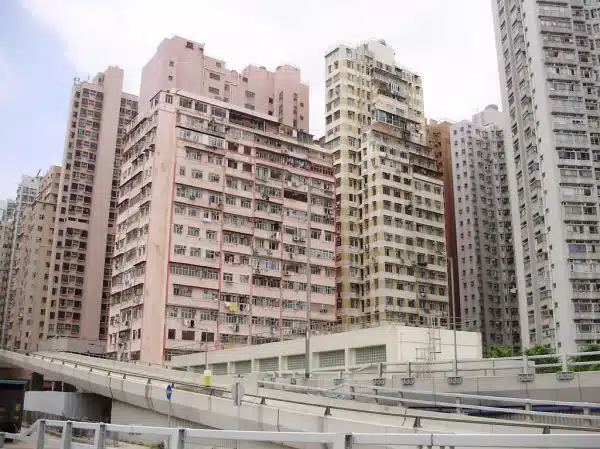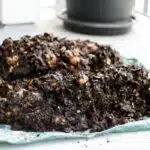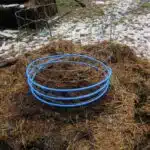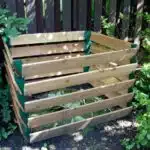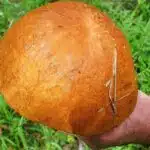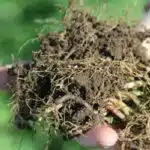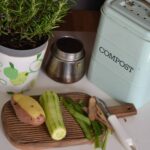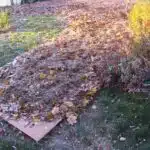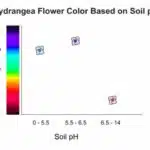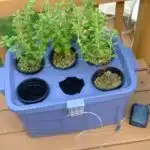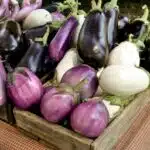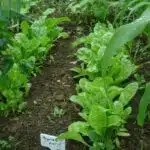Composting is an eco-friendly way of disposing of organic waste and producing nutrient-rich soil for plants. Although it may seem challenging to compost in an apartment, it is possible with the right tools and techniques. As an apartment composting expert, I have seen the benefits of this sustainable practice firsthand, and I am excited to share my knowledge with those who are interested in reducing their environmental footprint.
Composting not only reduces the amount of waste sent to landfills but also helps to improve soil health, reduce greenhouse gas emissions, and conserve water. With limited space and resources available in apartments, it can be challenging to create a successful composting system. However, by using a few simple methods such as vermiculture or bokashi composting, anyone can turn their food scraps into valuable fertilizer. In this article, I will guide you through the steps required to start composting in your apartment and provide tips on how to maintain a healthy compost pile.
Benefits Of Composting
Reducing waste is a crucial aspect of environmental sustainability. Composting, in particular, is an effective way to reduce the amount of organic waste that ends up in landfills. By composting food scraps and yard waste, not only are you reducing the amount of waste going into landfills but you are also creating nutrient-rich soil for your plants. This process helps to break down organic matter into a nutrient-rich substance that can improve soil health.
Composting has numerous benefits beyond just reducing waste and improving soil health. It also helps to conserve water by increasing the water retention capacity of soil. Additionally, composting helps to reduce greenhouse gas emissions from landfills as organic matter breaks down without oxygen which produces methane gas, a potent greenhouse gas. By composting at home or in your apartment, you are contributing to a more sustainable future.
Understanding your composting options is essential when it comes to apartment living. There are several different methods for composting depending on how much space you have available and what type of materials you have access to. By exploring these options and understanding which one works best for your lifestyle, you can start creating nutrient-rich soil for your plants while reducing your environmental impact.
Understanding Your Composting Options
Composting is an environmentally friendly way to reduce waste and improve soil quality. As we discussed in the previous section, there are numerous benefits to composting, including reducing greenhouse gas emissions, improving soil structure and fertility, and reducing the need for chemical fertilizers. In this section, we will explore different composting options available for apartment dwellers.
Composting equipment comes in many forms, from simple DIY solutions to more complex systems. The key is finding what works best for your living space and lifestyle. For those with limited space, a worm bin or bokashi bucket may be the most practical option. These methods utilize microorganisms to break down organic material quickly and efficiently without creating odors or attracting pests. Alternatively, a small-scale compost tumbler can be used on a balcony or patio, while larger outdoor compost bins can be used by those with access to communal garden spaces.
Composting techniques also vary based on available resources and personal preferences. Some people prefer a hot composting method that involves layering high-nitrogen materials (such as food scraps) with high-carbon materials (such as leaves or shredded paper) to create heat that accelerates the decomposition process. Others may prefer a slower cold composting method that simply involves adding organic matter to a bin over time until it breaks down into usable soil. Regardless of the method chosen, it’s essential to maintain proper moisture levels and mix in enough air to keep the compost aerated and prevent unpleasant smells from developing.
When it comes to choosing the right composting method for your apartment, consider factors such as available space, budget, time commitment, and desired outcome. Each method has its own advantages and disadvantages, so take some time to research different options before committing to one specific approach. Remember that even small-scale composting efforts can have a big impact on both the environment and personal well-being!
Choosing The Right Composting Method For Your Apartment
In the fast-paced urban life, even the smallest of actions can make a significant difference in preserving our environment. Composting is one such eco-friendly practice that has gained immense popularity over time. For apartment dwellers, it may seem challenging to compost with limited space, but with the right method, it is entirely possible. Indoor and outdoor composting are two options that individuals can explore based on their preferences and availability.
Indoor composting involves using a container to collect food waste, which later decomposes into nutrient-rich soil. It is an excellent choice for those who have limited outdoor space or live in apartments without balconies. In contrast, outdoor composting requires a designated area where organic matter can decompose naturally over time. This method is suitable for those who have access to outdoor spaces like gardens or balconies.
Composting with limited space requires a little effort and creativity. Indoor composting bins come in various sizes and shapes, making them ideal for small apartments or homes with limited storage spaces. Outdoor composting containers like tumblers or vermicomposting systems can be placed on balconies or rooftops to maximize usage of available space.
Moving forward, vermicomposting: using worms to compost is an effective way to turn food scraps into nutrient-rich soil while also reducing waste going into landfills. Vermicomposting involves adding red wiggler worms to your indoor or outdoor compost bin, which eat through food scraps and help break down the organic matter faster than traditional methods. It’s an excellent option for apartment dwellers looking for an efficient way to compost while also minimizing their carbon footprint.
Vermicomposting: Using Worms To Compost
Vermicomposting, also known as worm composting, is a great option for those who live in apartments and want to compost their food scraps. Worms are efficient decomposers and can turn your kitchen waste into nutrient-rich compost. However, before starting the process, it’s important to select the right type of worms.
When selecting worms for vermicomposting, it’s best to choose red wigglers (Eisenia fetida). These worms are ideal because they thrive in confined spaces and can consume large amounts of organic matter. Additionally, they produce high-quality castings that make excellent fertilizer for plants.
One of the benefits of vermicomposting is that it also produces compost tea, a liquid fertilizer that is rich in nutrients and beneficial microorganisms. To produce compost tea, simply add water to the worm castings and let them steep for a few days. Then strain out any solids and use the liquid to water your plants.
Overall, vermicomposting is an easy and convenient way to compost in an apartment. By selecting the right type of worms and producing nutrient-rich compost tea, you can turn your food scraps into valuable fertilizer for your indoor or outdoor plants.
Bullet Point List:
- Red wigglers (Eisenia fetida) are the best choice for vermicomposting
- Vermicomposting produces high-quality castings that make excellent fertilizer
- Compost tea produced from vermicomposting is rich in nutrients and beneficial microorganisms
- Compost tea can be used as liquid fertilizer for indoor or outdoor plants
Next section topic: Bokashi Composting: Fermenting Your Food Scraps
Bokashi Composting: Fermenting Your Food Scraps
Having discussed vermicomposting in the previous section, it’s time to move on to another method of composting suitable for apartment living: bokashi composting. This technique involves fermenting food scraps using a special mix of microorganisms, which helps break down organic matter and create nutrient-rich soil.
One major benefit of bokashi composting is that it doesn’t produce any foul odors, making it an ideal option for those who might be concerned about unpleasant smells in their apartments. The fermentation process actually produces a slightly sweet smell as opposed to the usual sour odor associated with traditional composting methods. This is because the microorganisms used in bokashi composting are different from those found in typical backyard compost piles, producing a different type of breakdown process.
To start bokashi composting, you’ll need a few key materials: a container with an air-tight lid (such as a plastic bucket), bokashi bran (a mix of beneficial microorganisms), and food scraps. Simply layer your food scraps with a sprinkle of bokashi bran and pack them tightly into the container. Once full, seal the lid tightly and allow the mixture to ferment for two weeks before transferring it to your outdoor garden or potted plants. With this simple system in place, you can easily turn your food waste into nutrient-rich soil without ever leaving your apartment!
Moving forward, let’s explore how you can build your own unique bokashi composting system at home by incorporating some additional techniques and tools that will help you get started on the road towards sustainable living.
Building Your Composting System
As an apartment composting expert, building your DIY composting system is a crucial step towards sustainable living. Before you start, ensure that you have all the necessary composting supplies in place. You will need a container, bedding material such as shredded paper or cardboard, food scraps, and water.
Firstly, choose a container that fits your space and budget. A plastic bin with a tight-fitting lid is an ideal option for beginners. You can purchase one from a local hardware store or online retailer. Alternatively, you can repurpose an old storage container or trash can by drilling holes at the bottom for ventilation.
Once you have selected your container, add the bedding material to the bottom of the bin. The bedding should be moist but not soaked to allow for proper airflow. Add food scraps on top of the bedding and mix well to promote decomposition. Finally, cover the bin with its lid and place it in a cool and dark corner of your apartment.
Next up: choosing your composting container.
Choosing Your Composting Container
Choosing the right composting container is essential for apartment dwellers who want to recycle their organic waste. When selecting a container, it is important to consider your space constraints, budget, and lifestyle preferences. DIY solutions are readily available for those who want to save money and get creative.
One of the most popular budget-friendly options for composting in an apartment is using a plastic bin with a tight-fitting lid. These containers can be purchased at hardware or home improvement stores and are relatively inexpensive. Alternatively, if you have some carpentry skills, you can build your own wooden box with ventilation holes. This option allows for customization in terms of size and design.
Another option for those looking to invest in a more high-end composting container is an indoor composter. These devices come in various sizes and styles and are designed specifically for use in small spaces like apartments. They typically use worms or other microorganisms to break down food scraps into nutrient-rich soil quickly.
Now that you have selected the perfect composting container for your apartment, it’s time to start filling it up! But before you do, it’s important to know what materials should go into your compost pile. In the next section, we will discuss which items are acceptable for composting and which ones should be avoided.
What To Compost
Composting in an apartment is an efficient way to reduce waste and recycle organic material. Organic materials that can be composted include food scraps, yard trimmings, and paper products. The most popular composting method for an apartment is vermicomposting, which involves using worms to break down organic material. Another method is container composting, which uses a sealed container to contain the organic material and the breakdown process. Composting in an apartment offers a range of advantages, including reducing the amount of waste going to landfills, creating nutrient-rich soil for plants, and providing a natural fertilizer. Additionally, composting can also help to reduce greenhouse gas emissions.
Types Of Compostable Materials
Composting is an excellent way to reduce waste and create nutritious soil for your plants. It’s a win-win situation that benefits both you and the environment. However, it’s essential to know which materials are compostable. In apartment composting, there are two types of compostable materials: brown and green.
Brown materials include dry leaves, paper, cardboard, sawdust, and wood chips. They contain high amounts of carbon and provide structure to the compost pile. On the other hand, green materials consist of fresh grass clippings, vegetable scraps, fruit peelings, coffee grounds, and tea bags. These items have high nitrogen content and add moisture to the pile.
Both types of compostable materials play an important role in creating nutrient-rich soil for your plants. Brown materials provide aeration while green materials supply nitrogen necessary for microbial activity. By mixing these two components in proper ratios (3 parts brown to 1 part green), you can achieve optimal results from your composting efforts.
In conclusion, understanding the different types of compostable materials is crucial for successful apartment composting. The right balance between brown and green items ensures efficient decomposition leading to nutrient-rich soil that benefits your plants. Moreover, by diverting waste from landfills through home composting efforts like this one, you contribute positively towards a healthier planet for all living things!
Composting Methods
When it comes to composting, there are different methods that you can use. One of the most popular methods is indoor composting, which is perfect for people living in apartments or urban areas with limited space. Indoor composting involves using a container or bin to hold your compostable materials. This method allows you to control the environment and reduce odors, making it a convenient and easy way to compost.
Another method of composting is outdoor composting, which involves creating a pile or bin outside your home. This method is ideal for those who have a backyard or garden space where they can create their compost pile. Outdoor composting requires more space and maintenance than indoor composting, but it’s an effective way to create nutrient-rich soil for your plants.
Lastly, vermicomposting is another method of indoor composting that uses worms to decompose organic waste. Vermicomposting is an excellent option for those who want to create high-quality soil quickly while reducing waste. It’s also perfect for apartment dwellers since it doesn’t produce any unpleasant smells and takes up minimal space.
In conclusion, understanding the different methods of composting allows you to choose the best one that suits your needs and lifestyle. Whether you prefer indoor or outdoor gardening, there’s always a composting method that can help you reduce waste while benefiting your plants’ growth. By incorporating these methods into your daily routine, you contribute positively towards creating a healthier planet for yourself and others around you!
Advantages Of Composting
As an apartment composting expert, it’s important to highlight the benefits and impact of composting. Composting is a process that involves breaking down organic waste materials such as food scraps, leaves, and yard trimmings to create nutrient-rich soil. One of the significant advantages of composting is its positive impact on the environment. By composting, you reduce the amount of waste that ends up in landfills, decreasing greenhouse gas emissions and helping to mitigate climate change.
Composting also has numerous benefits for your community. For instance, creating your compost helps to reduce municipal waste management costs while providing a valuable resource for gardeners and farmers. Additionally, using compost in place of synthetic fertilizers helps maintain soil health while reducing water pollution and erosion.
Furthermore, incorporating compost into your daily routine can have personal benefits as well. You’ll feel good about doing your part in reducing waste and contributing positively to the environment. Plus you’ll be able to see the fruits of your labor with healthier plants and gardens! In summary, understanding the benefits and impact of composting can motivate you to start this sustainable practice today.
What Not To Compost
Composting misconceptions are abundant in today’s society. One common misconception is that all organic materials can be composted. However, certain items should not be included in your apartment compost pile. Meat, bones, and dairy products should not be added as they attract pests and take longer to decompose. Additionally, pet waste should not be composted as it may contain harmful bacteria.
Fortunately, there are plenty of composting alternatives for these items. Meat and dairy products can be disposed of in a separate container and brought to a local compost facility or added to municipal organic waste collection programs. As for pet waste, it can also be disposed of in a separate bin or flushed down the toilet (if allowed by local regulations) to avoid contamination of the compost pile.
By avoiding these prohibited items, you can keep your apartment compost pile healthy and odor-free. Not only will this benefit your own household, but it will also help reduce the amount of organic waste going into landfills and contribute to a more sustainable environment.
Transition: Now that you know what not to include in your compost pile, let’s explore how to maintain your apartment compost for optimal results.
Maintaining Your Compost Pile
One of the biggest concerns when composting in an apartment is managing odor. Proper management of your compost pile can help to reduce unpleasant smells that might attract unwanted pests and offend your neighbors. There are several tips you can try to keep your compost pile smelling fresh, such as adding dry materials like shredded paper or leaves to balance out wet kitchen scraps. You should also stir the pile regularly to allow for proper aeration. Covering the top layer of your compost with a layer of soil or finished compost can help reduce odors and keep pests away.
Fruit flies are another common problem that apartment dwellers face when composting indoors. These pesky insects can be controlled by making sure all food waste is buried deep within the pile so that it cannot attract flies. You may also want to try placing a small dish of apple cider vinegar near your compost bin to trap any fruit flies that do manage to get inside.
Proper maintenance is key when it comes to keeping your apartment compost pile healthy and productive. By following these tips for odor control and fruit fly management, you’ll be well on your way to enjoying rich, nutrient-dense soil for all of your indoor gardening needs. If you encounter any issues along the way, don’t worry – there are plenty of troubleshooting techniques available that can help get your compost back on track.
Troubleshooting Common Composting Issues
Maintaining your compost pile is essential to ensure that the decomposition process goes smoothly and efficiently. However, even with proper maintenance, common composting issues can still arise. Here are some troubleshooting tips to help you address these issues:
Firstly, one of the most common composting issues is a bad odor emanating from your pile. This typically happens when there is an excess of nitrogen-rich materials like food scraps or grass clippings in your compost. To combat this issue, you can add carbon-rich materials such as dry leaves or shredded paper to balance out the nitrogen levels. Additionally, make sure that your pile is not too wet or compacted, as this can also cause odors.
Another issue that may arise is pests such as fruit flies or rodents being attracted to your compost bin. To prevent this from happening, avoid adding meat or dairy products to your compost as they tend to attract pests. You can also try burying fresh food scraps deep within the pile rather than leaving them on top where they are more visible and accessible to pests.
Lastly, if you notice that your compost pile is not breaking down as quickly as it should be, it may be due to a lack of oxygen in the pile. To remedy this issue, try turning and aerating the contents of your bin regularly using a pitchfork or shovel. You can also add bulking agents such as wood chips or straw to increase airflow within the pile.
Overall, troubleshooting common composting issues requires patience and a willingness to experiment with different solutions until you find what works best for you and your specific situation.
Moving forward into harvesting your compost, there are several key steps that you should follow in order to ensure that your final product is ready for use in your garden or on indoor plants.
Harvesting Your Compost
As you patiently wait for the decomposition process to complete, it is essential to start thinking about harvesting your compost. By maximizing yield, you can increase the amount of nutrient-rich soil conditioner that you can use in your garden or indoor plants. The best way to achieve this is by ensuring that your compost is fully decomposed before harvesting.
Composting with limited space can be a challenge, but it is still possible to achieve maximum yield. You can consider using a worm composting system, which takes up minimal space and produces high-quality compost. Another option is to utilize a bokashi bin, which uses bacteria to break down food waste into nutrient-rich soil.
Once your compost has reached its full potential, it’s time to harvest it! Start by separating any uncomposted materials from the finished compost. You may also need to sift through the soil using a fine mesh screen or sieve. Afterward, transfer your harvested compost into an airtight container and store it in a cool, dry place until ready for use.
Preparing and harvesting your apartment compost can be an incredibly rewarding experience. Now that you have completed these essential steps, you are ready for using your compost in all your gardening needs!
Using Your Compost
Now that you have successfully composted your organic waste, you can use the resulting compost to improve soil quality and plant growth. One way to utilize your compost is by making compost tea. Compost tea is a liquid fertilizer made by soaking compost in water for a few days. This nutrient-rich liquid can be used to water plants or sprayed directly on leaves for a quick boost of nutrients. Simply strain the solids from the tea before using it.
Composting is not just beneficial for plants, but also for pets. Pet owners can use finished compost as bedding for small animals like hamsters or rabbits. The compost provides a soft and natural material for animals to burrow in, while also absorbing moisture and controlling odor. Additionally, dog owners can add pet waste to their compost pile, as long as it is kept separate from human food scraps and allowed to decompose fully before being used in the garden.
Incorporating compost into your daily life not only benefits your plants and pets but also helps reduce food waste. By diverting organic waste from landfills, we can decrease greenhouse gas emissions and create nutrient-rich soil that supports healthy ecosystems. In the next section, we will explore the importance of reducing food waste and how apartment dwellers can do their part in this effort.
The Importance Of Reducing Food Waste
Reducing food waste is essential for creating a sustainable future. Food waste in the global context is a significant problem that affects both developed and developing countries. According to the United Nations, approximately one-third of all food produced worldwide is wasted, which equates to 1.3 billion tonnes per year. This waste has severe environmental, social, and economic impacts.
To reduce food waste, we must take actionable steps that can make a difference. One of the most effective ways to do this is by reducing our own food waste at home. We can achieve this by planning meals carefully, shopping smarter, storing food correctly, and using up leftovers creatively. By adopting these habits, we can significantly reduce the amount of food we throw away each week.
Overall, reducing food waste requires a collective effort from individuals, businesses, and governments worldwide. As citizens of this planet, it’s our responsibility to take action towards creating a sustainable future for ourselves and future generations. By reducing our food waste at home and supporting initiatives that aim to reduce food loss and waste globally, we can contribute towards achieving this goal. In the next section, we will explore how composting in an apartment setting can be an impactful step towards reducing food waste and creating a more sustainable future.
Conclusion: Taking Action For A Sustainable Future
Reducing food waste is an essential aspect of maintaining a sustainable lifestyle. As we have seen, food waste has significant economic, social, and environmental impacts. It is important to adopt practices that prevent or minimize food waste from homes, businesses, and institutions. One way to achieve this is through composting.
Composting is an environmentally responsible practice that involves converting organic waste into a nutrient-rich soil amendment. Apartment dwellers can also participate in this practice by using small-scale composting methods such as vermicomposting or bokashi composting. Vermicomposting involves the use of worms to break down food scraps into nutrient-rich castings or worm excrement. On the other hand, bokashi composting uses a fermentation process that breaks down organic matter without using oxygen.
By composting in apartments, individuals can contribute to reducing methane emissions from landfills while producing high-quality soil for their plants or gardens. Additionally, it helps to create awareness about the importance of reducing food waste and adopting sustainable lifestyles that promote environmental responsibility. Therefore, it is crucial to take action and start composting today for a more sustainable future.
Conclusion
Composting is an eco-friendly and cost-effective way to reduce waste and create nutrient-rich soil. As more people move into apartments, it’s important to understand the different options available for composting in a small space. Vermicomposting uses worms to break down food scraps, while Bokashi composting ferments organic matter. Both methods can be done indoors and are low-maintenance.
Choosing the right method depends on your lifestyle and living situation. Vermicomposting requires a bin, bedding material, and worms, while Bokashi composting uses a special mix of microbes to ferment food scraps. Once your compost is ready, you can use it for gardening or donate it to community gardens.
Reducing food waste is essential for sustainability. Composting not only diverts organic material from landfills but also reduces greenhouse gas emissions. By taking action and implementing a composting system in your apartment, you’re contributing to a healthier environment for future generations.
In conclusion, apartment composting may seem daunting at first, but with the right knowledge and tools, anyone can do it. Remember to choose the method that suits your needs and commit to reducing food waste. Together we can make a difference in creating a sustainable future for our planet. Let’s turn our apartments into green havens!
Image Credits
- “Pink apartments” by gyoung (featured)

